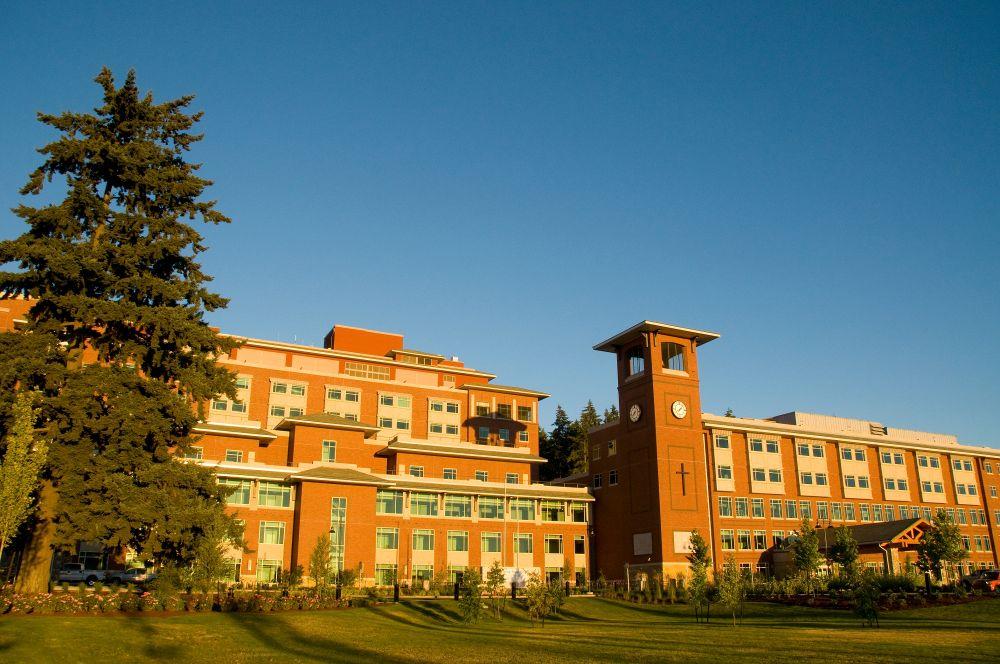
A family of a Veneta man who died after successive treatments by PeaceHealth physicians is suing the hospital group for more than $1 million.
James Joseph Barto died at the age of 80 in October 2017, nearly two months after seeking treatment at PeaceHealth Sacred Heart Medical Center at RiverBend in Springfield. The lawsuit claims he died because physicians prescribed a medication that he was allergic to which caused a lung condition.
Spokespeople at PeaceHealth did not respond to requests for comment. Federal rankings show that in-hospital deaths involving treatable conditions following surgeries at PeaceHealth in Springfield were in line with the national average -- about 160 per 1,000 patients on basic Medicare, which serves people 65 and over.
The hospital was also rated average in the number of patients experiencing serious complications.
The lawsuit says that Barto initially sought help at Sacred Heart’s emergency department for a heart condition. He was diagnosed with ventricular arrhythmia, an abnormal heartbeat that can cause the heart to beat too fast and cause cardiac arrest.
The complaint says that the emergency physician noted that Barto was allergic to Amiodarone, a drug that’s used to treat an irregular heartbeat.
Barto was admitted to the hospital and seen by a cardiologist, Dr. Hongsheng Guo, the suit says. It claims that Guo noted the allergy but prescribed Amiodarone anyway.
The medication has a long list of potential side effects but the most serious is a potentially fatal lung condition.
“Amiodarone can cause pulmonary (lung) toxicity, which doctors either know or should know,” the suit says.
Studies indicate that the medication is most often associated with a higher dose of 400 milligrams a day over more than two months or a daily dose of 200 milligrams during at least two years.
Guo started Barto on Amiodarone on Sept. 11, the suit says. Over the following days, successive specialists approved the use of Amiodarone, according to the suit. They included Barto’s primary cardiologist, Dr. Ramakota Reddy, cardiothoracic surgeon Dr. Paul Koh and Dr. James Christon, who said he doubted that Barto “ever had Amiodarone toxicity,” the complaint claims.
Another physician, Dr. John Gundry, noted the Amiodarone allergy, the suit says. He determined that Barto needed a coronary artery bypass grafting to improve blood flow to the heart. Goh performed the operation and Barto was continued on Amiodarone, the suit says.
The lawsuit gives no details about dosage.
Barto developed shortness of breath, the suit says, prompting a nurse, McKenzie Watt, to question whether it was linked to the drug. She notified a physician, the complaint says.
A few days later an X-ray revealed that Barto had fluid in his lungs, the suit says. He was discharged from the hospital to a care center to recover from heart surgery. He had a fainting episode and was admitted to Sacred Heart’s emergency room. Reddy, his primary cardiologist, increased his dose of Amiodarone, the suit says.
Over the next two weeks, he had to return to the ER three times for a cough, shortness of breath and other issues. Nearly a week after his third ER trip a lung specialist at Sacred Heart, Dr. Binaya Rimal, took him off Amiodarone, suspecting that Barto had lung disease. Barto’s primary cardiologist agreed that the medication should be stopped, the suit says.
Barto died five days later, the suit says.
“The cause of death was acute hypoxic respiratory failure due to interstitial lung disease, probably caused by Amiodarone,” the complaint says.
The suit accuses the hospital of negligence, citing his allergy to Amiodarone and its continued use to treat Barto. It says hospital staff did not tell him or his family of the potential complications and failed to consider alternative treatments.
You can reach Lynne Terry at [email protected].